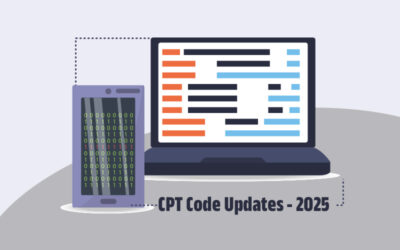According to oxhp.com, epilepsy is commonly found and 10% of Americans have at least one seizure in their lifetime. This neurological condition is characterized by two or more unprovoked seizures. Seizures are unpredictable and it is difficult for health care providers to diagnose epilepsy. Neurologists are required to carefully understand the medical history of the patient and assess brain imaging results to analyze the abnormal patterns of electrical activity in the brain. It is essential to have specificity in the diagnosis for delivering excellent patient care and for accurate clinical documentation. Medical billing services can ensure that appropriate ICD-10 codes and CPT codes are compiled based on the clinical documentation.
CPT Codes To Report Epilepsy Treatment Procedures
The severity of the disease and its outcome have to be examined by neurologists to determine the treatment plan. Excellent patient care can be delivered only with accurate diagnosis. The CPT codes corresponding to each procedure have to be accurately assigned for successful reimbursement of the claims.
- 95819- Routine EEG (Electroencephalogram)
Electroencephalogram or EEG is a diagnostic test that uses small electrodes attached to the scalp to measure the electrical activity of the brain. In this procedure, the provider performs the EEG during awake and asleep states of the patient.
- 95709- Long-term EEG monitoring
The patient undergoes an electroencephalography, a study of the electrical activity of the brain, lasting 12 to 26 hours with intermittent monitoring and maintenance. No video recording is made, and an EEG technologist reviews the data and writes a technical description.
- 70554 – MRI procedures of the Head and Neck
The provider performs a functional magnetic resonance imaging (fMRI) of the brain, which tracks brain activity by assessing the metabolic changes that occur in response to neural activity.
- 78811-Positron Emission Tomography (PET)
In this diagnostic procedure, the provider performs PET, positron emission tomography, on a small, defined area of the body. PET is a type of nuclear imaging test that produces three-dimensional images of functional processes in the body, and is an effective method of detecting tumor cells in the body.
ICD-10 Codes to Report Epilepsy
The ICD-10 codes for epilepsy are mentioned under G00-G99 Diseases of the nervous system, G40-G47 Episodic and paroxysmal disorders.
- G40- Epilepsy
- G40.11: Localization-related (focal) (partial) idiopathic epilepsy and epileptic syndromes with seizures or localized onset, intractable, with status epilepticus.
- G40.019: Localization-related (focal) (partial) idiopathic epilepsy and epileptic syndromes with seizures of localized onset, intractable, without status epilepticus.
- G40.111: Localization-related (focal) (partial) symptomatic epilepsy and epileptic syndromes with simple partial seizures, intractable, with status epilepticus.
- G40.119: Localization-related (focal) (partial) symptomatic epilepsy and epileptic syndromes with simple partial seizures, intractable, without status epilepticus.
- G40.211: Localization-related (focal) (partial) symptomatic epilepsy and epileptic syndromes with complex partial seizure, intractable, with status epilepticus.
- G40.219: Localization-related (focal) (partial) symptomatic epilepsy and epileptic syndromes with complex partial seizures, intractable, without status epilepticus.
- G40.3: Generalized idiopathic epilepsy and epileptic syndrome
- G40.4: Other generalized epilepsy and epileptic syndromes
- G40.5: Special epileptic syndromes
- G40.6: Grand mal seizures, unspecified (with or without petit mal)
- G40.7: Petit mal, unspecified, without grand mal seizures
- G40.8: Other epilepsy
- G40.9: Epilepsy, unspecified
- G41: Status epilepticus
- G41.0: Grand mal status epilepticus
- G41.1: Petit mal status epilepticus
- G41.2: Complex partial status epilepticus
- G41.8: Other status epilepticus
- G41.9: Status epilepticus, unspecified
Accurate neurology medical billing is essential for prompt reimbursement of medical claims. An expert team of coders can appropriately assign codes, eliminating the chances of claim denials.




